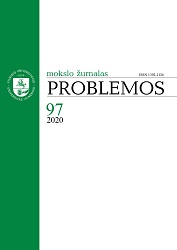Moraliniai Arendt politikos sampratos pagrindai
The Moral Grounds of Arendt’s Conception of Politics
Author(s): Simas ČelutkaSubject(s): Ethics / Practical Philosophy, Political Philosophy, Political Theory, Contemporary Philosophy
Published by: Vilniaus Universiteto Leidykla
Keywords: Arendt; politics; morality; plurality; natality;
Summary/Abstract: Many critics of Hannah Arendt claim that her account of politics lacks moral guidelines and constraints. In their view, she radically dissociated politics from morality. Such an interpretation is mistaken. These critics fail to acknowledge that Arendt’s conception has its own resources of normativity. Fundamental categories of Arendt’s political theory (plurality, natality, freedom, equality, forgiveness, promise) serve moral, as well as political, purposes. The internalization of these categories strengthens political actors’ moral judgment and their sense of responsibility. Active participation in political life engenders respect for human dignity and the multiplicity of different perspectives. Critics ignore the moral dimension of Arendt’s conception of politics because they confuse different levels of analysis of the relationship between politics and morality. In the paper, these levels are discussed using the metaphor of a three-storey house.
Journal: Problemos
- Issue Year: 2020
- Issue No: 97
- Page Range: 75-86
- Page Count: 12
- Language: Lithuanian

